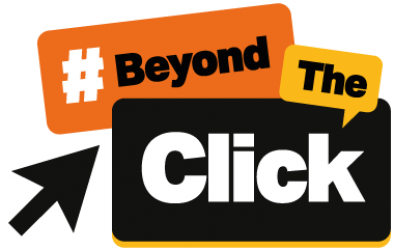Top 5's - Digital Literacy Resources
Top 5 Toolkits
1. tolerance.org/classroom-resources/lessons – a key place to start (from the Teaching Tolerance organisation in Montgomery, Alabama) with a basic set of topic driven resources based significantly in digital media on subjects including bullying and bias, ability, gender, immigration, ethnicity, religion, rights and activism. Includes a strong justice, equality, tolerance and citizenship agenda. Developed for classrooms but very easy to adapt (as we did!)
2. Worldwise Global Schools Junior Cycle Digital Media Literacy – a junior cycle schools resource (easily adapted for use in other educational settings); it covers much of the basics (‘my online life’, the social role of digital media, issues and debates within social media and its uses, activities and onward links for use in education, debates etc.). The resource is also presented in the context of the SDGs. It is available free online.
3. RADI Aid How to Communicate the World: A Social Media Guide For Volunteers and Travelers – though presented as a guide for volunteer programmes, this brief resource explores a range of broader issues related to the use of social media in the context of depicting the world. It explores issues such as language, images, stereotyping and their impact. It could be productively used in conjunction with the Dóchas Code of Conduct on images and messages.
The Social Media Guide for Volunteers and Travellers: radiaid.com/social-media-guide
The Dóchas Code: dochas.ie/images-and-messages
4. No Hate Speech Campaign and Council of Europe (2017 updated) WE CAN! Taking Action against Hate Speech through Counter and Alternative Narratives – excellent backgrounder and practical ideas kit on the issue; definitions, background information, action ideas and planning, counter messaging, competence through action, sample workshop outline etc.
Download: rm.coe.int/wecan-eng-final-23052017-web/168071ba08
The No Hate Speech Movement in Ireland campaign materials also provide a rich platform for action. In particular, check out the 4 skills to challenge hate speech online (1. report hate speech; 2. challenge hate speech; 3. defend and promote human rights; 4. disagree with respect): nohatespeech.ie/act
5. Cassie Hague and Sarah Payton (2010) Digital Literacy Across the Curriculum, Futurelab – overview resource emphasising digital literacy in practice with multiple case studies, links and resources and excellent section on its importance, can be readily adapted for non-formal education settings. Part of the agenda of the National Foundation for Educational Research in the UK. Download: nfer.ac.uk/publications/FUTL06/FUTL06.pdf
See also their case studies resource: nfer.ac.uk/publications/FUTL06/FUTL06casestudies.pdf
6. Stronger Together: A toolkit for partnerships in and beyond Development Education (2017) by the Irish Development Education Association. This toolkit supports anyone working in development education (and human rights education) to understand, establish and manage partnerships, which explores working in partnership within ‘the sector’, and how a range of practitioners can develop partnerships beyond their traditional focus.
Top 5 Videos
A place to start.
Compelling 9 minute talk by author and organiser Eli Pariser on the pitfalls and dangers of ‘filter bubbles’ on the internet and their implications for our world view, for democracy and for citizenship. A great discussion starter.
Accessible 20 minute TED talk on ethics and digital citizenship Gerd Leonard of the Futures Agency in Zurich (http://thefuturesagency.com/ ) – how do we know the information collected on us is used ethically – is the internet ‘creepy’ or ‘useful’? Do we have the right to privacy?
A challenging 4 minute video on the links between human rights and the digital age with Arvind Ganesan of NGO Human Rights Watch, with a case study from Guatemala.
How can journalists determine what is hate speech? The EJN gives five points which media professionals (and others!) should review before they publish.
Ali Velshi is an anchor & correspondent with MSNBC. As a journalist with extensive experience, Ali has had the opportunity to witness all forms of news. One type in particular poses a threat that has been exacerbated in our digital media society – fake news.
At a TEDxQueens event Ali discusses the problems of fake news, how we are all affected by it, and how individuals can ensure the news they’re reading is rooted in fact, not fiction.
Top 5 Websites
1. tolerance.org – a key reference point with a huge array of resource materials on digital literacy and much more; from the Teaching Tolerance organisation in Montgomery, Alabama. 8 key sections on race, ethnicity, tolerance, rights, activism, etc., also teaching strategies, film kits, posters etc. Digital literacy ideas and far more…
2. commonsense.org/education – extensive US site with resources and advice for educators, parents and activists; a strong focus on promoting empathy and compassion; focus on issues such as cyberbullying, gender etc., it includes educational activities, videos, background briefings etc.
3. ethicaljournalismnetwork.org – the Ethical Journalism Network website is packed with materials and content ready-made for educational use. In particular, check out the EJN 5-point test for hate speech in journalism (superb 1-page infographic included)
4. itu.int/en/Pages/default.aspx – International Telecommunication Union (ITU); for detailed information about the diffusion of ICTs in the world; the most reliable and updated website with many references and links
5. indigenousx.com.au – an online platform for Indigenous Australians to share their experiences, voices and ideas. the platform recognises that Indigenous voices are not heard in the mainstream, and is a response to this.
Top 5 for further reading
1. Government of Malta, Department of eLearning (2015) Digital Literacy: 21st Century Competences for Our Age – The Building Blocks of Digital Literacy: From Enhancement to Transformation – excellent accessible summary of the issues and challenges; definitions, EU background, key building blocks and competences etc. A good place to get an initial overview.
Download: education.gov.mt/en/elearning/Documents/Green%20Paper%20Digital%20Literacy%20v6.pdf
2. David Buckingham (2007) Digital Media Literacies: rethinking media education in the age of the Internet, Research in Comparative and International Education, Volume 2, Number 1, 2007 – solid overview of the broad landscape of the issue going well beyond the ‘technical competencies’ approach into the political economy of the internet – lecturer, Institute of Education, University of London
3. For those who want to access the ‘big picture’ on ‘big data’ and how it is increasingly impacting on our lives and that of our communities and their future, see Cathy O’Neil’s brilliant Weapons of Math Destruction (Penguin 2016). Detailed (and scary) analysis of how the information and data, harvested by companies and private interests affects us all (and potentially negatively) and how it can be used to undermine democracy.
About the book: weaponsofmathdestructionbook.com and book review on The Guardian theguardian.com/books/2016/oct/27/cathy-oneil-weapons-of-math-destruction-algorithms-big-data
4. A general reader on human rights, sustainable development and global justice ideas and arguments, 80-20 Development in an Unequal World edited by Tony Daly, Ciara Regan and Colm Regan, now in its 7th edition, critically engages with the Sustainable Development Goals agenda, the struggle for climate justice and economic inequalities, as well as investigating and supporting activism and how change happens in the 21st century world. Designed for educationalists in mind, the 7th edition was co-published by 80:20 Educating and Acting for a Better World and the New Internationalist.
Available from: 8020.ie/80-20-the-book and all general bookshops.

